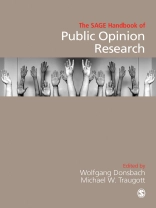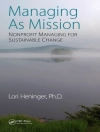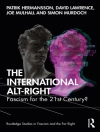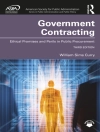′Some of the most experienced and thoughtful research experts in the world have contributed to this comprehensive Handbook, which should have a place on every serious survey researcher′s bookshelf′ –
Sir Robert Worcester, Founder of MORI and President of WAPOR ′82-′84.
′This is the book I have been waiting for. It not only reflects the state of the art, but will most likely also shape public opinion on public opinion research′ – Olof Petersson, Professor of political science, SNS, Stockholm, Sweden
′The Handbook of Public Opinion Research is very authoritative, well organized, and sensitive to key issues in opinion research around the world. It will be my first choice as a general reference book for orienting users and training producers of opinion polls in Southeast Asia′ – Mahar K. Mangahas, Ph.D., President of Social Weather Stations, Philippines (www.sws.org.ph)
′This is the most comprehensive book on public opinion research to date′ – Robert Ting-Yiu Chung, Secretary-Treasurer, World Association for Public Opinion Research (WAPOR); Director of Public Opinion Programme, The University of Hong Kong
Public opinion theory and research are becoming increasingly significant in modern societies as people′s attitudes and behaviours become ever more volatile and opinion poll data becomes ever more readily available. This major new Handbook is the first to bring together into one volume the whole field of public opinion theory, research methodology, and the political and social embeddedness of polls in modern societies. It comprehensively maps out the state-of-the-art in contemporary scholarship on these topics.
With over fifty chapters written by distinguished international researchers, both academic and from the commercial sector, this Handbook is designed to:
– give the reader an overview of the most important concepts included in and surrounding the term ′public opinion′ and its application in modern social research
– present the basic empirical concepts for assessing public opinion and opinion changes in society
– provide an overview of the social, political and legal status of public opinion research, how it is perceived by the public and by journalists, and how it is used by governments
– offer a review of the role and use of surveys for selected special fields of application, ranging from their use in legal cases to the use of polls in marketing and campaigns.
The Handbook of Public Opinion Research provides an indispensable resource for both practitioners and students alike.
สารบัญ
PART ONE: HISTORY, PHILOSOPHY OF PUBLIC OPINION AND PUBLIC OPINION RESEARCH
The Public and Public Opinion in Political Theories – Vincent Price
The Deliberating Public and Deliberative Polls – Peter Neijens
The News as a Reflection of Public Opinion – Thomas E. Patterson
Advocacy: Alternative Expressions of Public Opinion – Kurt Lang & Gladys Engel Lang
Studying Elites vs. Mass Opinion – Ursula Hoffmann-Lange
The Internet as a New Platform for Expressing Opinions and as a New Public Sphere – Bernhard Debatin
Popular Communication and Public Opinion – Debra Merskin & Jonathan David Tankel
The Historical Roots of Public Opinion Research – Anthony Oberschall
Mass-observation and Modern Public Opinion Research – Murray Goot
The Start of Modern Public Opinion Research – Hans L. Zetterberg
Public Opinion Research in Emerging Democracies – Robert Mattes
PART TWO: THEORIES OF PUBLIC OPINION FORMATION AND CHANGE – Penny S. Visser, Allyson Holbrook & Jon A. Krosnick
Knowledge and Attitudes
Conceptions of Attitudes and Opinions – Roger Tourangeau & Mirta Galešic
Theories on the Perception of Social Reality – William P. Eveland Carroll J. Glynn
Pluralistic Ignorance and Nonattitudes – Patricia Moy
Spiral of Silence Theory – Dietram A. Scheufele
Public Opinion and the Third-person Effect – Albert C. Gunther, Richard M. Perloff & Yariv Tsfati
Effects of the News Media on Public Opinion – Hans Mathias Kepplinger
Agenda-setting, Framing and Priming – Patrick Roessler
PART THREE: METHODOLOGY
The Methodological Strengths and Weaknesses of Survey Research – Herbert Weisberg
The Uses and Misuses of Polls – Michael W. Traugott
Face-to-face Surveys – Jennifer Dykema, Danna Basson & Nora Cate Schaeffer
Surveys by Telephone – Paul J. Lavrakas
Self-administered Paper Questionnaires – Don A. Dillman & Nicholas L. Parsons
Internet Surveys – Vasja Vehovar, Katja Lozar Manfreda & Gašper Koren
Different Survey Modes and International Comparisons – Yang-chih Fu & Yun-han Chu
Sampling – Colm O′Muircheartaigh
Survey Non-response – Adam J. Berinsky
Split ballots as an Experimental Approach to Public Opinion Research – Thomas Petersen
Panel Surveys – Jochen Hansen
Focus Groups and Public Opinion – David L. Morgan & Collin E. Fellows
Content Analyses and Public Opinion Research – Winfried Schulz
Designing Reliable and valid Questionnaires – Kenneth A. Rasinski
The Psychology of Survey Response – Norbert Schwarz
The use of Scales in Surveys – Michael Häder
The use of Visual Materials in Surveys – Thomas Petersen
Validation Studies – Michael W. Traugott
Identifying Value Clusters in Societies – Hans L. Zetterberg
PART FOUR: THE SOCIAL AND POLITICAL ENVIRONMENT OF PUBLIC OPINION RESEARCH
The Legal Status of Public Opinion Research in the World – Wolfgang Donsbach & Uwe Hartung
Attitudes of the Public Towards Public Opinion Research and Polling – Anne Hildreth
Attitudes of Journalists Toward Public Opinion Research – David H. Weaver
Codes of Ethics and Standards in Survey Research – Tom W. Smith
Archiving Poll Data – Wolfgang Jagodzinski & Meinhard Moschner
The News Media′s use of Opinion Polls – Frank Brettschneider
The use of Surveys by Governments and Politicians – Robert M. Eisinger
The use of Public Opinion Research in Propaganda – Michael Kunczik & Eva Johanna Schweitzer
The Effects of Published Polls on Citizens – Sibylle Hardmeier
PART FIVE: SPECIAL FIELDS OF APPLICATION
The use of Surveys as Legal Evidence – Anne Niedermann
Public Opinion and the Economy – Lutz M. Hagen
Marketing Research – Humphrey Taylor
Social Indicators and the Quality of Life – John P. Robinson, Kenneth C. Land & Steven Martin
Assessing Long-term Value Changes in Societies – Ottar Hellevik
Exit Polls and Pre-election Polls – Kathllen A. Frankovic
International Comparative Surveys – Marta Lagos
Their Purpose, Content and Methodological Challenges
The use of Voter Research in Campaigns – Fred Steeper












